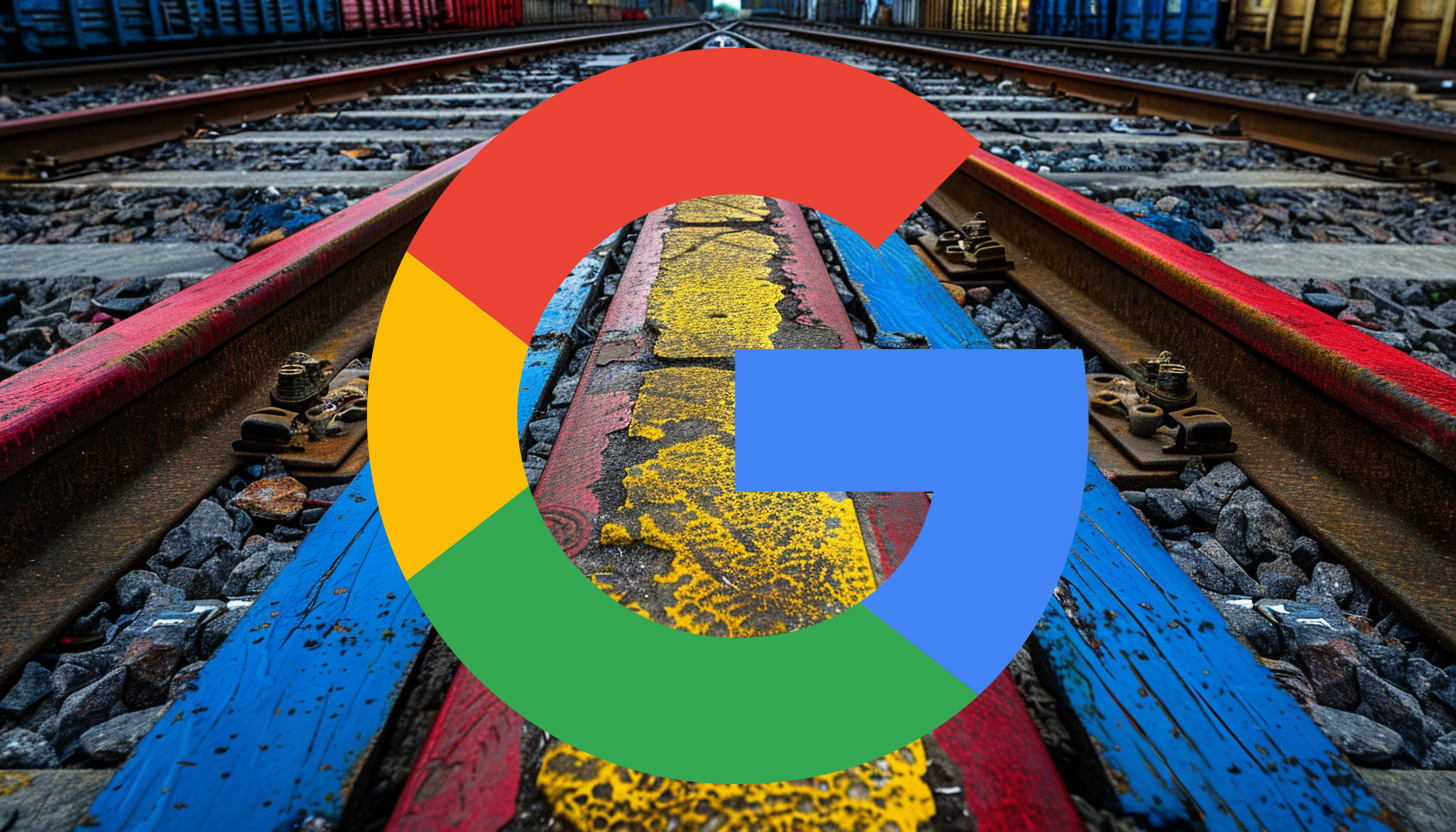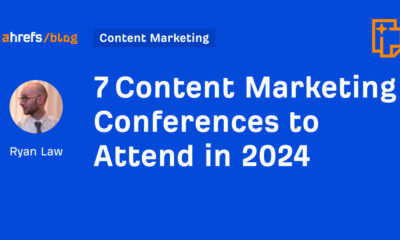SEARCHENGINES
Google On AI Content Adds Who, How, and Why With Content

Google’s Danny Sullivan reiterated that when it comes to AI content, Google is fine with it, as long as the content is useful and written for people. If you are using AI to write spam, then that is against Google’s guidelines. But Google also added a new section to the people-first content section on “who, how and why” with your content.
Most of this is about reiterating what Danny Sullivan of Google said a month ago on the topic of producing content using AI. In short, Google doesn’t care who writes the content, machine or human but rather if the content is written to help people and for people.
If you produce content, either by humans or machines, to manipulate search, Google will detect it (eventually) and take action.
What is interesting is with this clarification from Google also updated its people first content page to recommend you think about explaining to people who, how and why of the content. Danny Sullivan said none of this is required to rank in search but it may make sense to explain this with your content, depending on the type of content. This is how Google put it on this page (copy and paste):
Ask “Who, How, and Why” about your content:
Consider evaluating your content in terms of “Who, How, and Why” as a way to stay on course with what our systems seek to reward.
Who (created the content):
Something that helps people intuitively understand the E-E-A-T of content is when it’s clear who created it. That’s the “Who” to consider. When creating content, here are some who-related questions to ask yourself:
- Is it self-evident to your visitors who authored your content?
- Do pages carry a byline, where one might be expected?
- Do bylines lead to further information about the author or authors involved, giving background about them and the areas they write about?
If you’re clearly indicating who created the content, you’re likely aligned with the concepts of E-E-A-T and on a path to success. We strongly encourage adding accurate authorship information, such as bylines to content where readers might expect it.
How (the content was created)
It’s helpful to readers to know how a piece of content was produced: this is the “How” to consider including in your content.
For example, with product reviews, it can build trust with readers when they understand the number of products that were tested, what the test results were, and how the tests were conducted, all accompanied by evidence of the work involved, such as photographs. It’s advice we share more about in our Write high quality product reviews help page.
Many types of content may have a “How” component to them. That can include automated, AI-generated, and AI-assisted content. Sharing details about the processes involved can help readers and visitors better understand any unique and useful role automation may have served.
If automation is used to substantially generate content, here are some questions to ask yourself:
- Is the use of automation, including AI-generation, self-evident to visitors through disclosures or in other ways?
- Are you providing background about how automation or AI-generation was used to create content?
- Are you explaining why automation or AI was seen as useful to produce content?
Overall, AI or automation disclosures are useful for content where someone might think “How was this created?” Consider adding these when it would be reasonably expected. For more, see our blog post and FAQ: Google Search’s guidance about AI-generated content.
Why (was the content created)
“Why” is perhaps the most important question to answer about your content. Why is it being created in the first place?
The “why” should be that you’re creating content primarily to help people, content that is useful to visitors if they come to your site directly. If you’re doing this, you’re aligning with E-E-A-T generally and what our core ranking systems seek to reward.
If the “why” is that you’re primarily making content to attract search engine visits, that’s not aligned with what our systems seek to reward. If you use automation, including AI-generation, to produce content for the primary purpose of manipulating search rankings, that’s a violation of our spam policies.
—
There, that is the copy and paste part.
Google also published a set of FAQs around AI content and Google Search, here is more copy and paste:
- Is AI content against Google Search’s guidelines? Appropriate use of AI or automation is not against our guidelines. This means that it is not used to generate content primarily to manipulate search rankings, which is against our spam policies.
- Why doesn’t Google Search ban AI content? Automation has long been used in publishing to create useful content. AI can assist with and generate useful content in exciting new ways.
- How will Google Search prevent poor quality AI content from taking over search results? Poor quality content isn’t a new challenge for Google Search to deal with. We’ve been tackling poor quality content created both by humans and automation for years. We have existing systems to determine the helpfulness of content. Other systems work to elevate original news reporting. Our systems continue to be regularly improved.
- How will Google address AI content that potentially propagates misinformation or contradicts consensus on important topics? These issues exist in both human-generated and AI-generated content. However content is produced, our systems look to surface high-quality information from reliable sources, and not information that contradicts well-established consensus on important topics. On topics where information quality is critically important — like health, civic, or financial information — our systems place an even greater emphasis on signals of reliability.
- How can Search determine if AI is being used to spam search results? We have a variety of systems, including SpamBrain, that analyze patterns and signals to help us identify spam content, however it is produced.
- Will AI content rank highly on Search? Using AI doesn’t give content any special gains. It’s just content. If it is useful, helpful, original and satisfies aspects of E-E-A-T, it might do well in Search. If it doesn’t, it might not.
- Should I use AI to generate content? If you see AI as an essential way to help you produce content that is helpful and original, it might be useful to consider. If you see AI as an inexpensive, easy way to game search engine rankings, then no.
- Should I add author bylines to all my content? You should consider having accurate author bylines when readers would reasonably expect it, such as to any content where someone might think, “Who wrote this?” As a reminder, publishers that appear in Google News should use bylines and author information. Learn more on our Google News policies page.
- Should I add AI or automation disclosures to my content? AI or automation disclosures are useful for content where someone might think “How was this created?” Consider adding these when it would be reasonably expected.
- Can I list AI as the author of content? Giving AI an author byline is probably not the best way to follow our recommendation to make clear to readers when AI is part of the content creation process.
From my original story, Danny Sullivan replied on Twitter referencing the previous comments they said about using AI to write content. He said, “As said before when asked about AI, content created primarily for search engine rankings, however it is done, is against our guidance. If content is helpful & created for people first, that’s not an issue.” Danny added that the “key to being successful with our helpful content system — and if it’s not helpful content, the system catches that.” Then he references the Google spam policies where he said, “Our spam policies also address spammy automatically-generated content, where we will take action if content is “generated through automated processes without regard for quality or user experience.”
Finally, he goes to the new EEAT guidelines and writes, “For anyone who uses *any method* to generate a lot content primarily for search rankings, our core systems look at many signals to reward content clearly demonstrating E-E-A-T (experience, expertise, authoritativeness, and trustworthiness).”
Google did note that trust is the most important part. Can you trust AI written content? SEOs trust AI content less and currently most won’t recommend it.
Can AI have “experience” with a topic? Danny told me that not all content needs to have all E-E-A-T and most content won’t have it all. But trust is the most important part.
Google wrote, “Our focus on the quality of content, rather than how content is produced, is a useful guide that has helped us deliver reliable, high quality results to users for years.” “For example, about 10 years ago, there were understandable concerns about a rise in mass-produced yet human-generated content. No one would have thought it reasonable for us to declare a ban on all human-generated content in response. Instead, it made more sense to improve our systems to reward quality content, as we did,” Google added.
Clearly, Google is not going to ban AI content from search. Google will rank the AI content that hits the marks it is looking for with quality. So even though AI can quickly, cheaply and effectively produce a ton of content fast, Google’s search algorithms will consume it and rank it alongside its human counterpart.
Forum discussion at Twitter.
SEARCHENGINES
Google Won’t Change The 301 Signals For Ranking & SEO

Gary Illyes from Google said on stage at the SERP conference last week that there is no way that Google would change how the 301 redirect signal works for SEO or search rankings. Gary added that it’s a very reliable signal.
Nikola Minkov quoted Gary Illyes as saying, “It is a very reliable signal, and there is no way we could change that signal,” when asked if a 301 redirect not working is a myth. Honestly, I am not sure the context of this question, as it is not clear from the post on X, but here it is:
More from @methode:
– 301 redirect not working is a myth. “It is a very reliable signal, and there is no way we could change that signal”.#SERPConf2024#SERPConf2024International— Nikola Minkov (@n_minkov) April 19, 2024
We’ve covered 301 redirects here countless times – but I never saw a myth that Google does not use 301 redirects as a signal for canonicalization or for passing signals from an old URL to the redirected URL.
Forum discussion at X.
Note: This was pre-written and scheduled to be posted today, I am currently offline for Passover.
SEARCHENGINES
Google Again Says Ignore Link Spam Especially To 404 Pages

I am not sure how many times Google has said that you do not need to disavow spammy links, that you can ignore link spam attacks and that links pointing to pages that 404/410 are links that do not count – but John Mueller from Google said it again.
In a thread on X, John Mueller from Google wrote, “if the links are going to URLs that 404 on your site, they’re already dropped.” “They do nothing,” he added, “If there’s no indexable destination URL, there’s no link.”
John then added, “I’d generally ignore link-spam, and definitely ignore link-spam to 404s.”
Asking if it would hurt to disavow, after responding with the messages above, John wrote:
It will do absolutely nothing. I would take the time to rework a holistic & forward-looking strategy for the site overall instead of working on incremental tweaks (other tweaks might do something, but you probably need real change, not tweaks).
Earlier this year we had tons of SEOs notice spammy links to 404 error pages, John said ignore them. In 2021, Google said links to 404 pages do not count, Google also said that in 2012 and many other times.
Plus, outside of links to 404 pages, Google has said to ignore spammy links, time and time again – even the toxic links – ignore them. The messaging around this changed in 2016 when Penguin 4.0 was released and Google began devaluing links over demoting them.
Here are those new posts in context:
I’d say add both. Lol
— Jeremy Rivera (@JeremyRiveraSEO) April 11, 2024
Sure. But also, save yourself the work completely :-).
— John 🧀 … 🧀 (@JohnMu) April 11, 2024
Re-reading your initial post – if the links are going to URLs that 404 on your site, they’re already dropped. They do nothing. If there’s no indexable destination URL, there’s no link. I’d generally ignore link-spam, and definitely ignore link-spam to 404s.
— John 🧀 … 🧀 (@JohnMu) April 11, 2024
… but still… is this a dumb idea?
— Rebekah Edwards (@rebekah_creates) April 11, 2024
It will do absolutely nothing. I would take the time to rework a holistic & forward-looking strategy for the site overall instead of working on incremental tweaks (other tweaks might do something, but you probably need real change, not tweaks).
— John 🧀 … 🧀 (@JohnMu) April 11, 2024
And in general, Google says it ignores spammy links, so you should too (not new) but this post from John Mueller is:
I would just ignore them, Google ignores them too. Sometimes they’re just more visible in tools, but that doesn’t mean they’re a problem.
— John 🧀 … 🧀 (@JohnMu) April 18, 2024
And then also on Mastodon wrote about a similar situation, “Google has 2 decades of practice of ignoring spammy links. There’s no need to do anything for those links.”
Forum discussion at X.
Note: This was pre-written and scheduled to be posted today, I am currently offline for Passover.
SEARCHENGINES
Google Needs Very Few Links To Rank Pages; Links Are Less Important

Gary Illyes from Google spoke at the SERP Conf on Friday and he said what he said numerous times before, that Google values links a lot less today than it did in the past. He added that Google Search “needs very few links to rank pages.”
Gary reportedly said, “We need very few links to rank pages… Over the years we’ve made links less important.”
I am quoting Patrick Stox who is quoting what he heard Gary say on stage at the event. Here is Patrick’s post where Gary did a rare reply:
I shouldn’t have said that… I definitely shouldn’t have said that
— Gary 鯨理/경리 Illyes (so official, trust me) (@methode) April 19, 2024
Gary said this a year ago, also in 2022 and other times as well. We previously covered that Google said links would likely become even less important in the future. And even Matt Cutts, the former Googler, said something similar about eight years ago and the truth is, links are weighted a lot less than it was eight years ago and that trend continues. A couple of years ago, Google said links are not the most important Google search ranking factor.
Of course, many SEOs think Google lies about this.
Judith Lewis interviewed Gary Illyes at the SERP Conf this past Friday.
-

 PPC6 days ago
PPC6 days ago19 Best SEO Tools in 2024 (For Every Use Case)
-

 MARKETING7 days ago
MARKETING7 days agoEcommerce evolution: Blurring the lines between B2B and B2C
-
SEARCHENGINES5 days ago
Daily Search Forum Recap: April 19, 2024
-
SEARCHENGINES6 days ago
Daily Search Forum Recap: April 18, 2024
-

 WORDPRESS6 days ago
WORDPRESS6 days agoHow to Make $5000 of Passive Income Every Month in WordPress
-

 SEO7 days ago
SEO7 days ago2024 WordPress Vulnerability Report Shows Errors Sites Keep Making
-

 WORDPRESS6 days ago
WORDPRESS6 days ago10 Amazing WordPress Design Resouces – WordPress.com News
-
WORDPRESS7 days ago
[GET] The7 Website And Ecommerce Builder For WordPress
















You must be logged in to post a comment Login